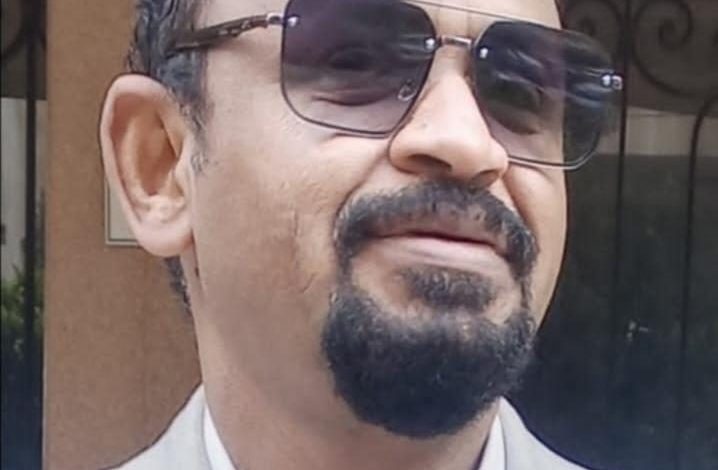New Scene .. Geneva Negotiations, the Evil Trick to Support the Rebellion!!

Abdel Sami Al-Amrani
In 2012, when the disputes were at their most intense between the Sudanese Government and the then-nascent government of South Sudan, negotiations were taking place in Addis Ababa regarding the Abyei dispute.
At that time, the negotiations on the Sudanese government side were led by a high-level delegation that included senior advisors and members of the Sudanese Armed Forces SAF General Staff, headed by Lt.Gen. Abdul Rahman Sharafi, Lt. Gen. Imad Adawi, Lt. Gen. Siddiq Amer, Maj. Gen. Mubarak Ahmed Abdullah, and Maj.Gen. Tariq Abdul Karim. This military delegation knew all the technical details about the Abyei problem and had great knowledge and awareness of the terrain of the region, the background of the conflict, and the security precautions related to the military, social, and humanitarian files. Despite the protracted duration of the negotiations, which had begun in May 2010 in the city of Mekelle, the capital of the Tigray region, they did not achieve clear progress as the mediators wanted them to be.
For a year and a half, the Sudanese government delegation remained committed to its point of view regarding the security and humanitarian file, so the South Sudanese delegation and the group of conspiring mediators were unable to break the steadfastness of the Sudanese negotiator. The UN mediation, led by the office of former South African Prime Minister Mbeki and a number of Troika partners, namely the United States, Britain and Norway, had their hearts and minds set on the South Sudanese delegation but failed to achieve their malicious goals during the marathon negotiations.
After they ran out of time, they demanded that a separate sub-forum be set up to discuss humanitarian issues, with the delegation to discuss humanitarian issues to consist of the Humanitarian Aid Commission, other lower-level representatives from the armed forces and a representative from the National Council.
I remember that the government delegation was led by the politician in West Kordofan, Omar Suleiman, and also included representatives of the Humanitarian Aid Commission, a brigade from the Sudanese Armed Forces SAF and some technicians. During the negotiation sessions, the Sudanese delegation was surprised when the mediators raised issues of a political nature and raised technical points of a military and security nature. On the sidelines, humanitarian issues were mentioned, all of which were in favor of the South Sudanese delegation. Even the commander of the Eskofa force, the Ethiopian general, I remember his name, Tedsa, was clearly biased toward the South Sudanese delegation, and during the negotiation sessions he presented a biased security report in which he attacked the Sudanese government and blamed the Sudanese army for all the violations that occurred in the Abyei Agreement signed in June 2011 in Addis Ababa.
In continuation of the malicious tricks of the partners who tried to exploit the weakness of the Sudanese government delegation, the mediation presented to the negotiating delegations a draft agreement on humanitarian issues.
It was a flawed agreement that included a large number of loopholes and points that put pressure on the Sudanese government. Because the government delegation had the same representation and level of experience as our current delegation that left for Geneva last week to discuss humanitarian issues, that delegation agreed to all the malicious proposals of the mediators and quickly signed the document, which was in English.
None of the delegation members bothered to review it carefully. I remember that the government delegation headed by Omar Suleiman faced a campaign of violent criticism and reprimand from the Ministry of Foreign Affairs and from members of the technical negotiating delegation headed by Ambassador Idris Abdel Qader and the group of generals in the General Staff headed by Lt Gen. Abdel Rahman Sharafi who were present in Khartoum at the time. I remembered this incident after we all reviewed the list of the government delegation sponsored by Lt. Gen.Ibrahim Jaber and led on the technical side by Salwa Adam Biniya, the Humanitarian Aid Commissioner, who lacks experience in political, military and security issues related to the humanitarian file, while the Rapid Support RSF delegation is made up of the same group as Jeddah Forum, and this is what the Sudanese government side should have rejected, because recognizing the subsidiary forum in Geneva implicitly means breaking the steadfastness of the government side and changing its firm positions that reject holding any negotiations with the rebellion before implementing the May 2023 agreement in Jeddah.
We do not rule out that another trap and snare will be prepared for the weak-level government delegation to pass points that serve the rebellion and facilitate their access to weapons through new outlets under the cover of facilitating humanitarian work, as happened before with the same Commissioner, Salwa Biniya, who previously agreed for the rebellion to obtain relief and provide all its needs from the airports of N’Djamena and Umm Jaras under the cover of humanitarian aid. We must not trust the cunning of friends before enemies in this comprehensive war waged against Sudan because they are all conspiring against us.
Yes, they all agree on one goal, which is to defeat the Sudanese army, in addition to intensifying pressure on the Sudanese people, particularly in the process of restricting them and limiting relief and humanitarian aid only to the border areas of Darfur.
These are known pressures whose goal is to force the Sudanese government to return to Jeddah platform to implement the Manama conditions and accept the entry of the Emirates as a main partner in the upcoming negotiations to sponsor and protect Manama’s disastrous proposals for Sudan.



